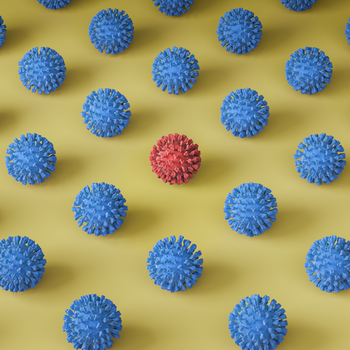COVID19: EU must ‘get in the driving seat’ on new variants to avoid a ‘perpetual pandemic’

Renew Europe has today called on the European Commission and EU Member States to act urgently to put in place a package of coordinated measures to tackle the threat posed by coronavirus mutations, including a transparent and European approach to the purchase of second generation vaccines, investment in research programmes and cooperation on the early identification of dangerous mutations.
Dacian Ciolos, President of Renew Europe said:
‘As new, more dangerous variants emerge, Europe must get back in the driving seat to avoid a perpetual pandemic. Individual countries are setting up programmes to identify new variants, but this must be coordinated better at a European level, with research resources to match. ‘
‘No stone must be left unturned to ensure that EU citizens have fast access to second generation vaccines, which means faster authorisation, increasing manufacturing capability, and urgent steps to tackle supply bottlenecks. Lessons need to be learnt: contracts for second-generation vaccines must be transparent and include fixed delivery dates, so our businesses and citizens can have faith once again in a European response.’
‘It is unacceptable that regional partners, for example Africa and our Eastern Neighbourhood are not due to vaccinated until many years from now. Allowing the virus space to mutate means no one in Europe will be safe until the whole world is safe. We need a coherent international response, including planning for future pandemic prevention - which Europe can lead.’
Renew Europe also calls for credible international action to prevent and mitigate future pandemics, including the negotiation and agreement of an International Treaty on Pandemics to enhance preparedness.
Véronique Trillet-Lenoir MEP, who has been appointed Rapporteur on the regulation on serious cross-border threats to health, a key pillar of this European Health Union, said:
‘In my report, I will fully support the proposal made by the President of the European Council, Charles Michel, to draw up an International Treaty on Pandemics to ensure better preparedness and a coordinated response to future pandemics.’
‘The COVID-19 crisis demonstrates that no country can fight a pandemic of this magnitude alone. Health nationalism, latent in some countries, must be brought to an end by strengthening international cooperation and coordination. The alliance of 27 Member States initiated by the European Commission for vaccine procurement is an exemplary precedent. Nobody is safe until everyone is safe. Eradicating pandemics requires global coordination and local implementation: we should set common objectives together and then implement them back home, which means for us at the European level”
ENDS